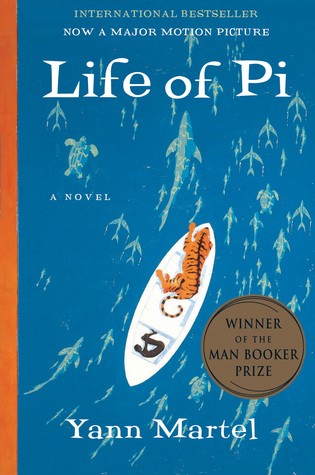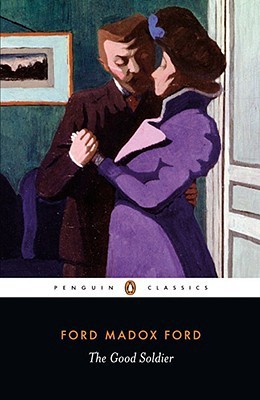Reading Lists
The 11 Least Reliable Narrators in Literature
From ‘Lolita’ to ‘Fight Club,’ you can’t trust a word these characters say

In the old days of less than a year ago, we generally lived by the rule that unreliable narrators could be found on library shelves while reliable sources wrote for newspapers. But now we’re living in the era of FAKE NEWS! (emphasis Trump’s), and everyone is suspect of concocting false tales. (Especially journalists. Maybe this whole list is a lie.)
With so much suspicion floating around the truth, now seems like a good time to revisit some of the most delusional, manipulative, or even unintentionally inaccurate narrators in fiction. Because while it’s easy enough to tell a lie, it’s more difficult to spot a liar, and even trickier to seamlessly portray one on the page. The term was officially coined by the American critic Wayne C. Booth in his 1961 work The Rhetoric of Fiction to describe a first person narrator who is not simply telling an untrue story — because fiction, after all, is inherently “fake” — but telling the story in a way that is at odds with the reality inside the book. In my mind, a well written unreliable narrator is a slow-burning reveal; they subtly shade the truth and drop breadcrumbs of their bias until we reader realize we’ve been had.
Here, then, are 11 of my favorite unreliable narrators, from (potentially) murderous psychos to spinners of ghost stories. Fair warning: spoilers ahead; duplicitous double-talkers will be unmasked and plot twists lauded.

1. Pi Patel from The Life of Pi
I finished Yann Martel’s stunning, Booker Prize-winning novel at the same time as a couple of my friends. While we all agreed we loved the book, we got into a heated debate about some fundamentals of the plot. Is Pi, the young Indian boy who survives a shipwreck off the coast of Manila, adrift on a lifeboat with a mini-zoo of animals, including a large Bengal tiger named Richard Parker, or is he stranded with other humans for which the animals are a kind of allegory? We didn’t come to any firm conclusions; the narrator offers both options as a possibility, and it only increases the magic of the book.

2. Briony Tallis from Atonement
Also nominated for the Booker Prize, McEwan’s novel explores how societal biases can empower unreliable narrators — and have disastrous consequences. The novel opens at a British manor house on the eve of World War II. Briony Tallis is only 13 years old and she doesn’t understand the romantic and sexual relationship that’s evolving between her older sister Cecilia and one of the groundsmen, Robbie Tallis. When Briony sees her cousin Lola being raped, she assumes the perpetrator is Robbie. Even though Briony is only a preteen, the police take her word over Robbie’s because she’s far above him in England’s entrenched social hierarchy. By the time she realizes that she’s misconstrued Robbie and Cecilia’s story, it’s too late.

3. Yunior de Las Casas from The Brief Wondrous Life of Oscar Wao
Diaz’s Pulitzer Prize-winning novel is the story of Oscar De León, an overweight, sci-fi loving Dominican kid growing up in Paterson, New Jersey. Oscar’s story is narrated by Yunior de las Casas, Oscar’s best friend and the sometime boyfriend to Oscar’s sister Lola. Yunior acts as an omniscient narrator, populating the story with details that he couldn’t have known and admitting that he changed some names between “drafts.” His fabrications may not be strictly real, but they allow Yunior to weave Oscar’s story into the larger narrative of the Dominican Republic.

4. John Dowell from The Good Soldier
Ford’s 1915 novel opens with the narrator telling us we are about to be told “the saddest story he has ever heard.” That narrator, John Dowell, is the kind of person who wants to see himself, and the world, in a very particular way — traditional, trustworthy, and loyal — and seems crushed when things turn out to be otherwise. But as the intentionally jumpy narrative comes together, Ford makes us wonder whether Dowell is the victim of this sad story or one of its creators.

5. The Unnamed Narrator from Fight Club
Palahniuk’s novel, and the film adaptation, have a cult following that can be attributed in no small part to the story’s I-Can-See-Dead-People level plot twist. When the story begins, the unnamed narrator is suffering from insomnia. While trying unconventional therapies to cure himself, he meets a man named Tyler Durden and the duo start an underground fight club in the basement of a bar. Things get progressively weirder until we realize that Durden isn’t our narrator’s new best friend, he’s his cooler, crazier alter-ego.

6. Barbara Covett from What Was She Thinking (Notes on a Scandal)
Zoë Heller’s novel highlights how unsettling it is to realize that you can’t trust your narrator, the person you’re counting on for information. Barbara Covett is a lonely history teacher who jumps at the chance to be friends with Sheba, the new art teacher at her school. When Sheba starts a highly inappropriate relationship with a young male student, Barbara is shocked and disapproving, and it’s plain that the reader should be, too. But as the affair fizzles out, we realize that Barbara may be even more manipulative than her friend, especially when she takes Sheba’s story into her own hands.
Tyrants & Demagogues in Fiction: A Reading List

7. Stevens from The Remains of the Day
The head butler of Darlington Hall is one of my all-time favorite unreliable narrators. Stevens is loyal, precise, and hard-working — and his blindness to the reality of the world around him is a master class on how to create dramatic irony. Because of his strict commitment to his duties, he’s unable to see the slow demise of the great house in which he works and, even more sadly, unable to acknowledge his feelings for a fellow employee.

8. Patrick Bateman from American Psycho
Is Patrick Batemen a murderer or schizophrenic or both? The protagonist of Ellis’ 1991 novel is a Wall Street broker and playboy who appears to murder, torture, and rape his way through the nightclubs and fancy restaurants of 1980’s Manhattan. A mounting list of discrepancies between Bateman’s point of view and what we learn from other characters culminates in the head-spinning ending, when Batemen tries to confess to his crimes — only to be told that he didn’t commit any.

9. The Governess from The Turn Of The Screw
James’ eery novella is a ghost story — or is it? The story is the self-reported manuscript of a governess who comes to take care of two orphans, Miles and Flora, at a country house in Essex. After she arrives at the estate, the governess encounters the ghosts of two former employees who have died. She’s the only person who can see the ghosts, but she’s convinced that they’re real. Is this a ghost story or a portrait of a woman’s mental breakdown? James keeps the reader guessing and the critics picking sides.

10. Amy and Nick Dunne from Gone Girl
Gillian Flynn pulls off not one but two unreliable narrators in her mysterious tale of a marriage gone bad. Is Amy as cold, type-A, and antisocial as Nick portrays her to be, or is Nick the aggressive and threatening husband that Amy describes? Flynn skillfully keeps the reader guessing while upping the stakes to the next level; the liar isn’t just responsible for a failed marriage, but possibly a murder as well.

11. Humbert Humbert from Lolita
“But in my arms,” asserts Humbert, “she was always Lolita.” Humbert Humbert uses a cocktail of delusion and manipulation to try and convince himself, Lolita, and the reader that he isn’t a monster for sexually abusing a preteen girl and killing her mother. But no amount of persuasion can change the fact that his “Lolita” is actually a young, vulnerable girl named Dolores and her mother a flesh and blood woman who loses her life.








